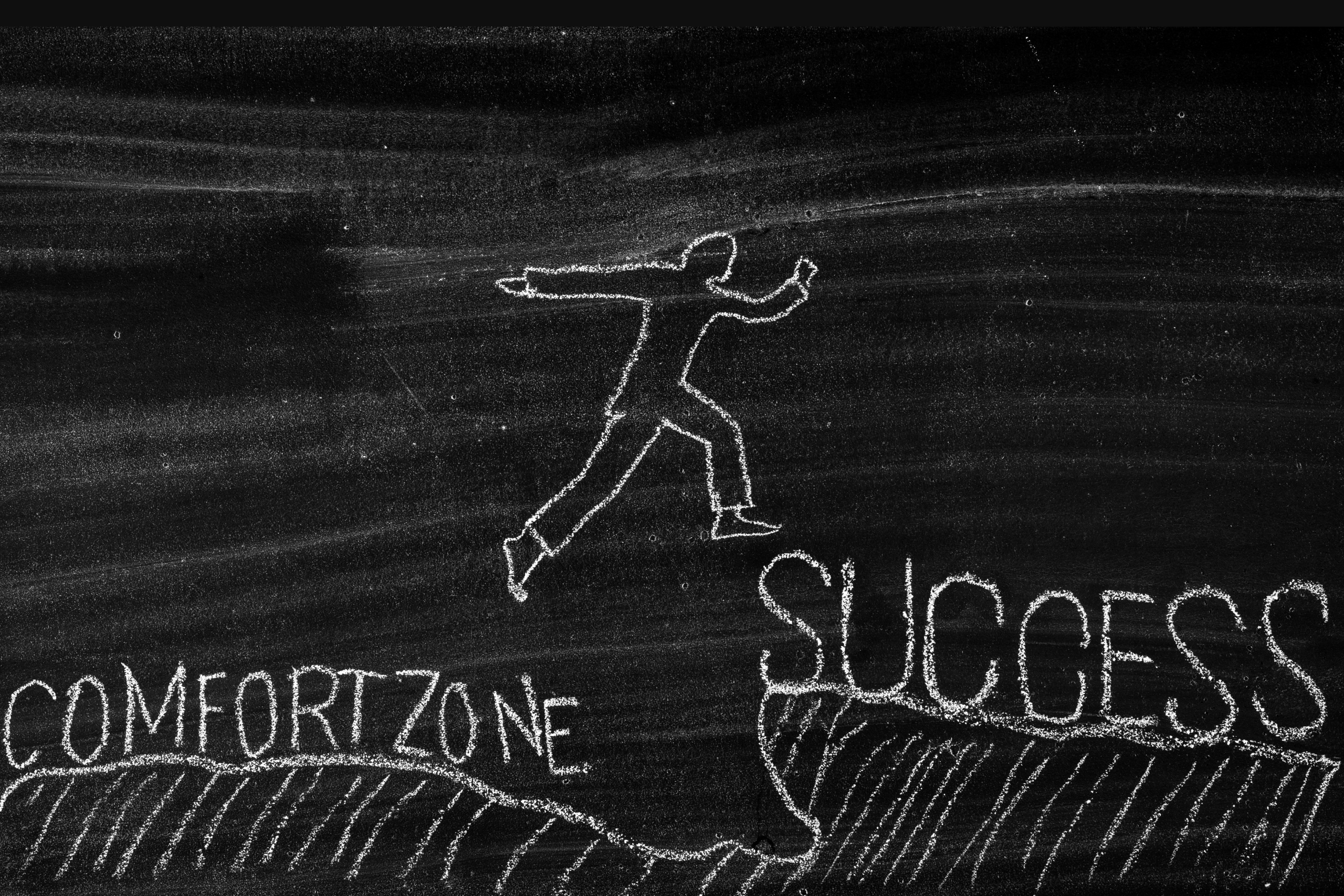It takes courage to take a leap. Whether it’s a physical leap or stepping out of your comfort zone, everybody’s leap means something different to them, but the need for courage remains the same. The ability to become comfortable in an uncomfortable situation will help when taking a giant leap into the unknown.
Dustin Webster was scared; that much was clear. It was unusual to see him this way. Dustin is the kind of employee that a supervisor dreams of. A real go-getter, Dustin always got to work on time (often early), undeterred by the Seattle traffic and unfazed by Seattle’s soggy mariner weather. With Dustin, such things never prompted grousing or pessimism. He had more important things on his mind, like pitching in, helping out, and getting the job done. So seeing Dustin scared, really scared, was way out of the norm. Looking back on it now, I’m sure Dustin’s fear had something to do with the nature of the task.
Stepping Out of The Comfort Zone
For Dustin, this was a pioneering endeavor. While he had plenty of skills to draw upon, and he had confronted plenty of other work challenges, this assignment went well beyond Dustin’s comfort zone and into foreign terrain. Firsts often provoke fear. I’m sure that Dustin had felt the same fearful feelings on his first day of school, the first time he drove a car, or the first time he kissed a girl. To see feelings were also at work the first time he led one of our team meetings, or the time I tapped him to be in charge when I got called out of town to temporarily lead another project. Because I was Dustin’s manager, my job was to help him temper his fear so that he could focus on the task at hand.
I had to believe in Dustin’s potential more than he believed in it himself.
I had to keep his potential at the forefront of my thinking. In a real way, I had to believe in Dustin’s potential more than he believed in it himself. Yes, Dustin was scared, and he had a right to be. In a moment, he would attempt a triple-twisting back double somersault after leaping backward from a tiny platform more than one hundred feet above the surface of a small pool. He’d be traveling at a velocity of over fifty miles per hour, a breakneck speed that could quite literally break his neck. Surprisingly, the things Dustin did to prepare for his big leap, and the things I did to coach him through it, were a little different from the things workers and managers need to do to help them stop being comfortable.
Becoming Comfortable
The big leap that Dustin was facing was a huge feat, but it wasn’t entirely outside the realm of his experience. The dive was just the next logical step in the progression of his skills and capabilities, and the culmination of lead-ups—less complex dives from lower heights—that he had taken over time. Plus, we had spent weeks preparing for this moment, building his confidence in a way that, metaphorically, lowered his high dive. Dustin first practiced doing takeoffs from the pool deck. Then we had him adjust the movable high-dive platform (called a perch) to ten feet above the water. Once he got comfortable with his takeoff from that height, we had him move it up twenty more feet. The process involved purposely moving from comfort to discomfort and back again.
When employees face challenges confidently and courageously, a positive outcome is more likely than if they don’t.
Once he got comfortable with one height, we’d stretch the height to a point of discomfort until the new height became comfortable, too. Each time Dustin got comfortable again, it was time for him to move up . . . we both knew the dangers of his becoming too comfortable! My job in all of this was to be Dustin’s chief encourager—literally, to help put courage in him. That meant I had to keep both of us focused on what Dustin had already done and what he was capable of doing. It would have done no good for me to stand on the pool deck yelling up to him about all the things he shouldn’t do. Yelling “Don’t do this!” and “Don’t do that!” would have kept him looking in the wrong direction. Instead, my coaching centered on the things he should do to make the dive happen.
Every High Dive Takes Courage
Putting a worker in charge of your team while you go on maternity leave is a high dive. Informing a worker that you are considering her as one of three people for your successor is a high dive. One person’s triple-twisting back double somersault is another’s must-win sale, do-or-die project, or failure-is-not-an-option strategic initiative. High dives come in many forms, including skill-stretching jobs, big consequential assignments, and sweeping organizational changes. In each case, when employees face such challenges confidently and courageously, a positive outcome is more likely than if they don’t. In each case, a positive outcome is mutually beneficial to them, to you, and to the company. And in each case, the best way to get them to do their high dive is to get them to move beyond comfort and fear.
Whatever your high dive is, it’s important to know how to be successful. Your high dive might pale in comparison to Dustin’s, but that doesn’t make it any less important. Stepping out of your comfort zone, becoming uncomfortable, and finding the courage to take a leap can make your high dive successful.



